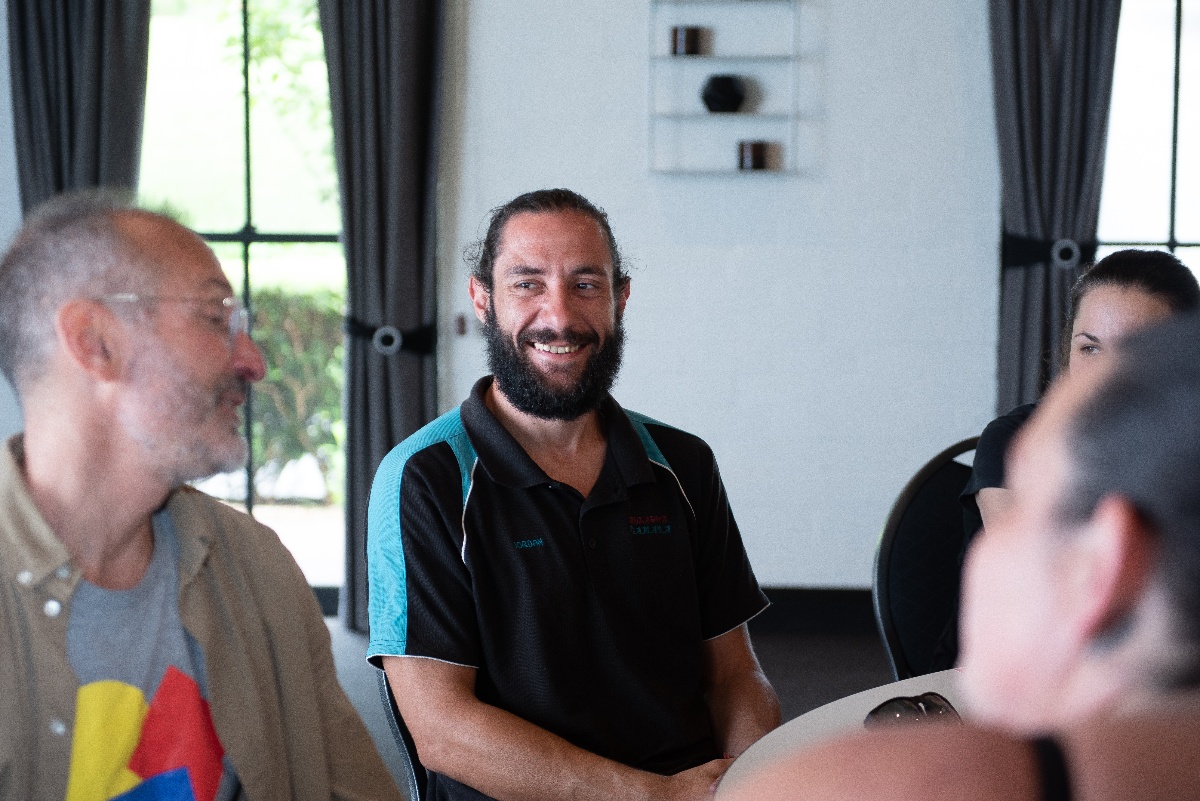Stories
Advance Australia How? Universities Accord a ‘once in a generation’ opportunity
3 min read
Advance Australia How? Universities Accord a ‘once in a generation’ opportunity
Dr Sarah Jones 27 February 2024

by Dr Sarah Jones, CEO of the Sydney School of Entrepreneurship
The ambitious Final Report of the Australian Universities Accord outlines an evidence-based, long-range view of what the tertiary education sector needs to deliver by 2050 to advance opportunity for more Australians and grow the economy. It maps out a blueprint for the sector for the next 25 years and invites us all to participate to ensure the success of the Accord’s recommendations.
Professor Mary O’Kane noted in her keynote remarks at this year’s Universities Australia Solutions Summit 2024 that we need a complete system redesign. This was echoed throughout the Final Report. Further, the ‘new and improved’ system must be one that eliminates what health economist Dr Stephen Duckett vividly described in the Report as ‘programmatic confetti’—disjointed, incoherent, short-term, part-funded initiatives that inherently encumber systemic change, drain resources, and which foster distrust amongst the very communities they’re designed to support and enable.
This need for a ‘deep-thinking system with clear direction’ should be the Government’s North Star as it deliberates its own response to the Review.
To fully unleash the visionary potential of The Accord requires a collective, systems approach to implementation and funding. In her groundbreaking work, Mission Economy, Mariana Mazzucato identifies the anticipated and unforeseen benefits arising when actors from the public and private sectors collaborate on mission-based projects to achieve outcomes that foster innovation and address societal challenges to stimulate economic growth, create jobs, and promote social progress.
The Accord is Australia’s mission-based project. And now is the time.
In working through the details, big questions requiring careful consideration begin to emerge. However before we seek answers, as a nation we need to seek to understand exactly what problems we’re trying to solve.
When we think about the 80% attainment target, we need to think strategically about where to channel our focus—and funds—to best support and help students succeed, including the workforce retraining (and technology enablers) that are actually required to manage the projected growth in participation.
More questions arise. How do we respect and raise the unique value propositions of regional and gateway universities and continue to fulfill the community, place-based needs and elevate the prosperity of the regions?
How do we engage with industry and business to ensure a cohesive approach to student education, employability, research potential and innovation, as well as translation and R&D commercialisation.
How do we responsibly and ethically integrate and leverage AI, and raise standards of digital literacy and technical innovation, not to mention elevate the broad transferable skills of entrepreneurship to unlock growth and productivity for the sector as well as the nation?
Strengthening and solidifying the links between universities, TAFE, and VET have been a long-held aspiration; now is the time.
The Report prioritises First Nations peoples and makes clear that we cannot achieve social justice without First Nations peoples (the term ‘First Nations’ was referenced 314 times in the Report; 377 when you include ‘Indigenous’ and ‘Aboriginal’). Co-designing, co-developing, co-researching with Australia’s First Nations peoples, and harnessing teaching and research informed by First Nations’ knowledge, were some of the vital suggestions raised.
So why is The Accord so important?
This is a once in a generation opportunity to change the face of this country, to achieve real equity, raise productivity and prosperity, improve standards of living, and nurture democratic ideals; to compete globally, grow more diverse leaders, and facilitate more change-makers; to improve national security and social values, and strengthen social cohesion.
We know from other countries that a well-educated country tends to look after itself and its citizens. What an ambition for Australia. But it won’t be easy, or fast. And with widening skills gaps and increasing workforce shortages, we need to think creatively about how we tackle these opportunities.
Ultimately, this bold and ambitious work seeks to address and rectify the cumulative effects of disadvantage. The Accord is a landmark document that presents a transformative vision for the future of higher education in Australia. It signals hope for eliminating equity gaps through data and systematic, structural and institutional change, and creating a more diverse and prosperous future for all Australians.
The recommendations—painstakingly developed over the course of more than 14 months—suggest a major reset and a challenge for the tertiary sector to reimagine how it undertakes research, develops curriculum, manages student administration, engages with industry, collaborates, and measures ‘success’, and works to build a better future.
As SSE—along with universities, TAFE, governments, and others across related sectors—assesses the details of this report and reflects on what they mean for our work and our ability to amplify and scale our impact, the Government’s response and funding deliberations are key. We’re excited for what’s next.
Related Stories


